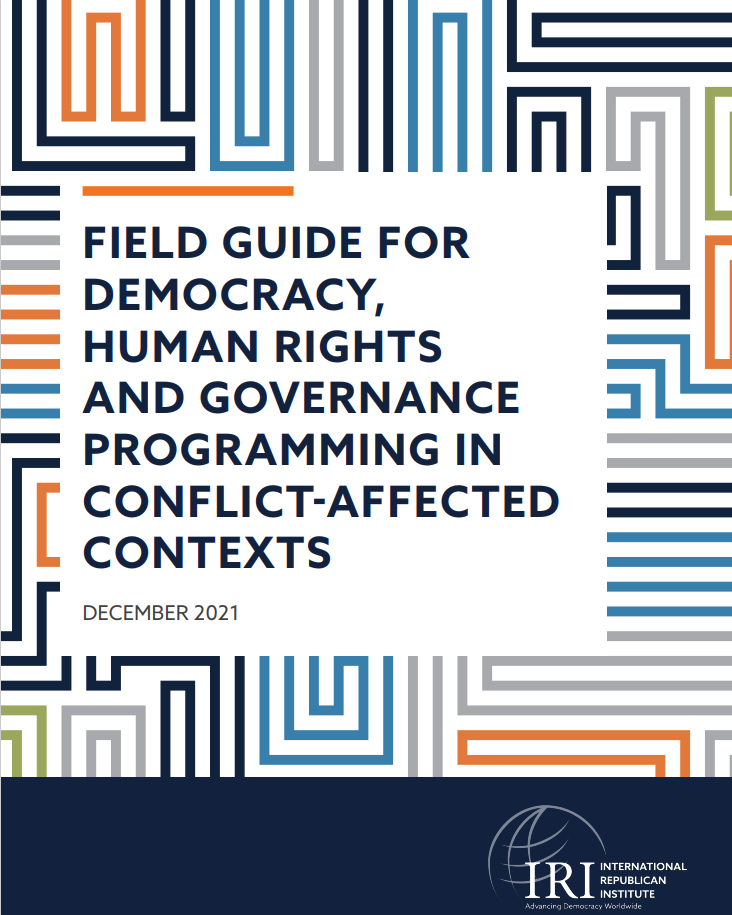Field Guide for Democracy, Human Rights, and Governance Programming in Conflict-Affected Contexts and Conflict, Governance, and Legitimacy Assessment Framework

Violent conflict has posed a major threat to providing accountable and democratic governance to citizens the world over. In addition to resulting in loss of life, displacement, and enormous economic damage, violent conflict and state fragility undermine state capacity, exacerbate social cleavages, and erode states’ ability to deliver public goods for their citizens. Ultimately, this threatens efforts to provide democratic governance and intensifies the drivers of conflict.
IRI has recently launched two resources that take stock of key challenges that conflict-affected contexts pose to strengthening democracy and lessons learned for overcoming them. IRI’s Field Guide for Democracy, Human Rights and Governance Programming in Conflict-Affected Contexts and Conflict, Governance and Legitimacy Assessment Framework are designed to serve as a starting point for policymakers, funders, implementers, and practitioners who intend to implement a Democracy, Human Rights, and Governance (DRG) program in a fragile or conflict-affected area. Practitioners should turn to these documents to guide their analysis of the relevant factors in the conflict system, to improve their understanding of which actors are perceived to be legitimate by local populations, as well as to understand best practices drawn from a wide-range of DRG programming in a variety of conflict-affected contexts.
DRG implementers in fragile and conflict-affected areas have often struggled to comprehend vital concepts such as legitimacy and have failed to ensure interventions are grounded in evidence. Without this understanding, at best, interventions fail to respond to the conflict dynamics or, at worst, inflame existing tensions and contribute to the drivers of conflict. IRI’s Conflict, Governance and Legitimacy Assessment Framework and Field Guide for Democracy, Human Rights and Governance Programming in Conflict-Affected Contexts aim to fill a key gap in evidence on DRG analysis and programming in fragile settings.
- The Field Guide for Democracy, Human Rights and Governance Programming in Conflict-Affected Contexts enables users to design context-specific DRG policies and programs that account for the unique challenges and lessons posed by conflict-affected contexts. It captures key results on how to effectively strengthen governance in fragile contexts. The Guide first introduces key concepts, then provides an overview of common DRG interventions and lessons on their application in fragile states, and finally offers guidance for program design implementation.
- The Conflict, Governance and Legitimacy Assessment Framework attempts to fill a gap in existing tools by offering guidance to measure legitimacy as part of conflict analysis and program design. Stabilizing conflict involves supporting governance through actors who the local population views as legitimate, as noted by the Stabilization Assistance Review (SAR). The Framework enables users to establish an understanding of the conflict system and gain insight on locally legitimate governance actors and systems.
